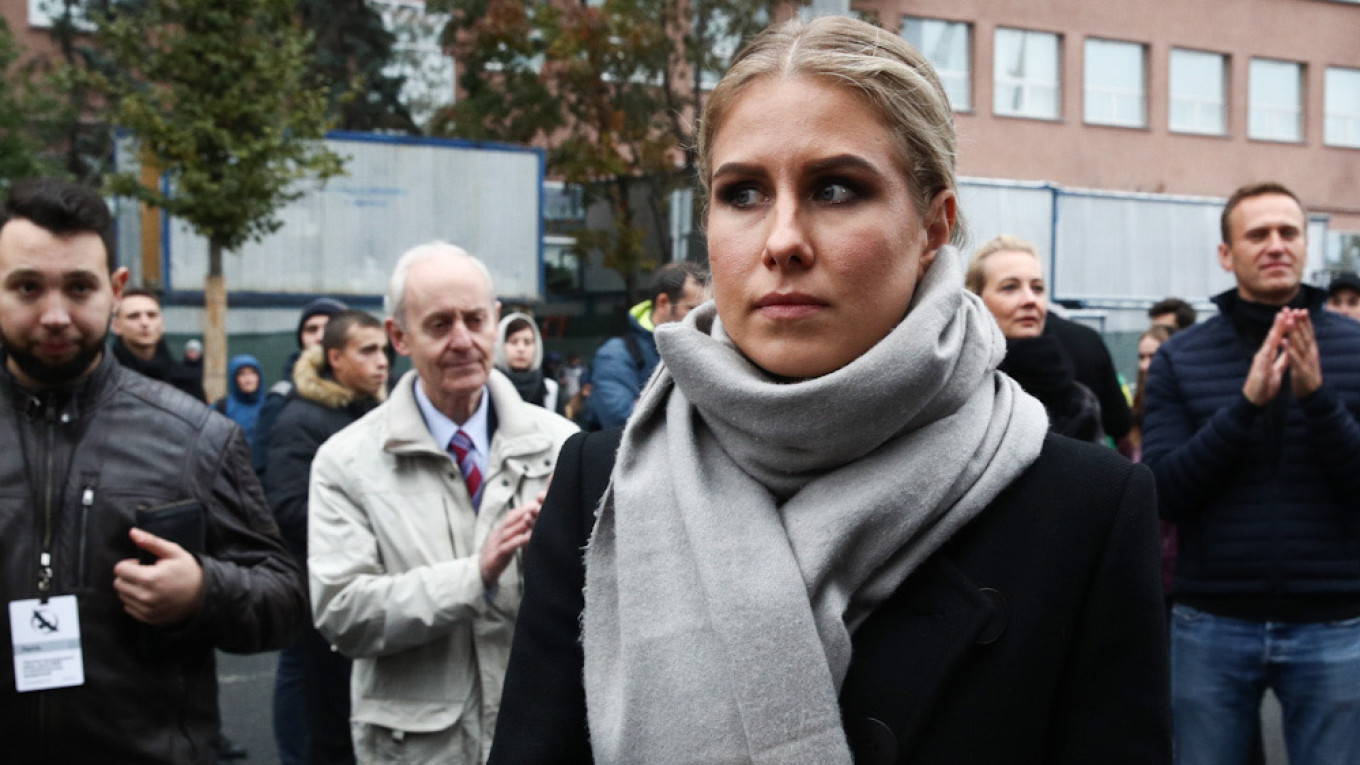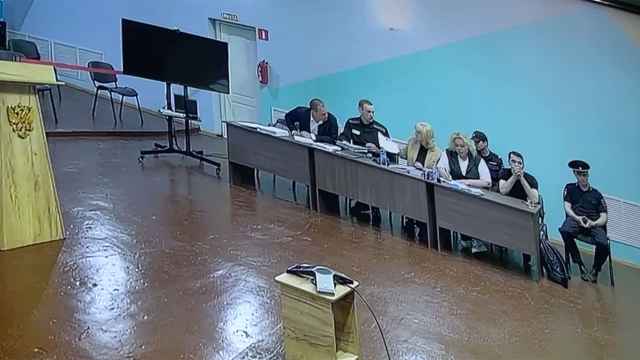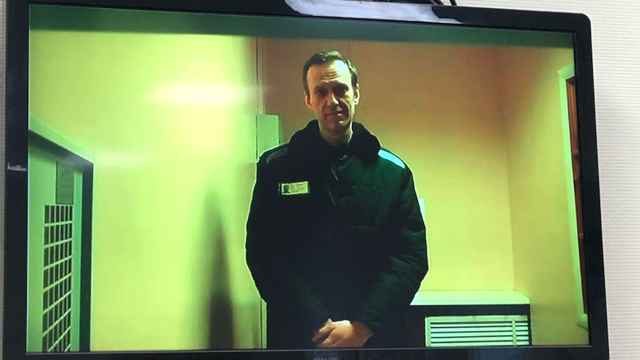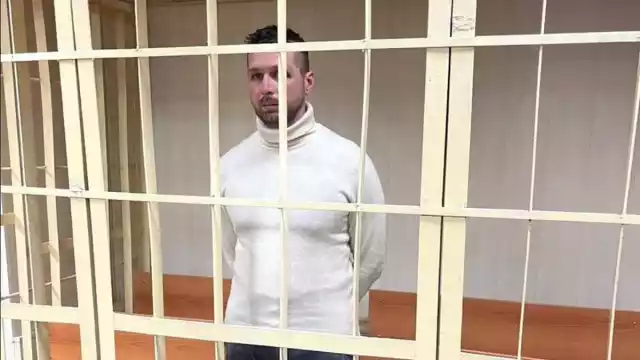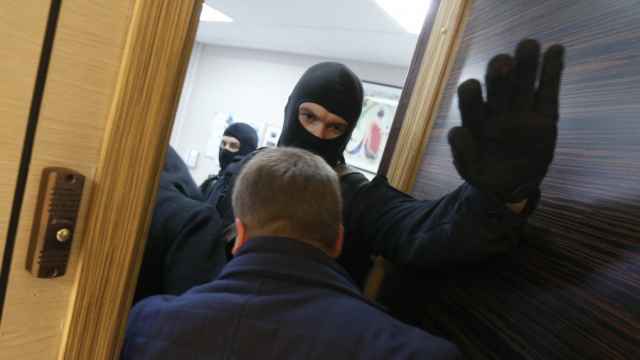Jailed Russian opposition leader Alexei Navalny’s close associate Lyubov Sobol was sentenced to a year of community service Thursday for visiting the apartment of an alleged security agent implicated in his poisoning.
Sobol was detained in December when she appeared outside the home of alleged Federal Security Service (FSB) chemical weapons expert Konstantin Kudryavtsev. Navalny and the open-source investigative group Bellingcat said Kudryavtsev was part of an FSB squad tasked with his poisoning and cleaning up the crime scene last August.
Navalny, who was sentenced to prison in Russia after returning from months of recovery abroad, published a viral video of a phone call where he tricked Kudryavtsev into divulging key details of the poisoning. The FSB dismissed the Kudryavtsev call as a “provocation” aiming to discredit the agency.
A Moscow court on Thursday found Sobol guilty of criminal trespass and sentenced her to one year of community service, according to Interfax.
Sobol’s lawyer Vladimir Voronin told reporters that they will appeal the sentence.
Sobol appeared in court wearing a shirt reading “Where is the criminal case into Navalny’s poisoning?”
Sobol was also placed under house arrest alongside several other Navalny allies earlier this year for “inciting mass violations of sanitary and epidemiological rules” by calling for rallies demanding Navalny’s release.
Last month, a court eased those restrictions to allow Sobol to attend church and take her daughter to school.
Navalny is serving a 2.5-year sentence for violating parole during his recovery from poisoning abroad on old fraud charges that he calls politically motivated.
A Message from The Moscow Times:
Dear readers,
We are facing unprecedented challenges. Russia's Prosecutor General's Office has designated The Moscow Times as an "undesirable" organization, criminalizing our work and putting our staff at risk of prosecution. This follows our earlier unjust labeling as a "foreign agent."
These actions are direct attempts to silence independent journalism in Russia. The authorities claim our work "discredits the decisions of the Russian leadership." We see things differently: we strive to provide accurate, unbiased reporting on Russia.
We, the journalists of The Moscow Times, refuse to be silenced. But to continue our work, we need your help.
Your support, no matter how small, makes a world of difference. If you can, please support us monthly starting from just $2. It's quick to set up, and every contribution makes a significant impact.
By supporting The Moscow Times, you're defending open, independent journalism in the face of repression. Thank you for standing with us.
Remind me later.


